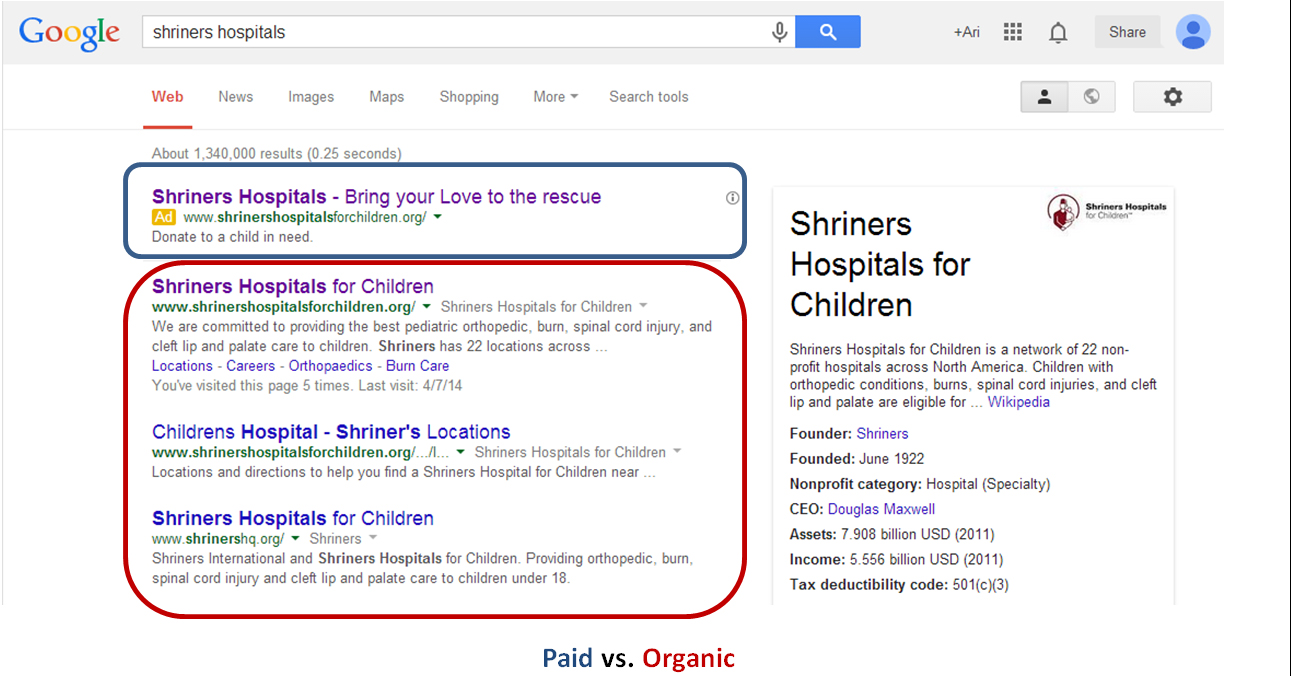SEM…PPC…CPC…What’s it all about? An intro to search engine marketing
Chances are you have heard these acronyms flying around. But what exactly do they all mean? Let’s start with SEM (search engine marketing), not to be confused with SEO (search engine optimization).
What is search engine marketing (SEM)?
Search engine marketing is the process of increasing your website’s visibility on search engines like Google, Yahoo and Bing through text-based ads. Search engine marketing can also be referred to as paid search or paid search advertising.
Google AdWords is the most popular paid search platform used by search marketers, followed by Bing Ads and Yahoo Gemini.
Why is search important?
Google’s network reaches more than 80% of worldwide Internet users. Unlike direct mail, email or TV ads, your search ad appears at the moment a potential donor’s interest in you is highest. These users are actively looking for more information about your organization. Because of the flexibility of paid search platforms, you are able to see results and adjust strategies and spending in real time. You can monitor the ROI on your campaign much more precisely than offline forms of advertising.

Your client may as you, “Why should I pay for clicks if my website ranks #1 in the organic results for free?&rrdquo; Websites appearing in both the paid and organic search results get 20% more traffic. The more real estate you take up on the results page, the less that is available to your competitors. Ads also give you more control over the message, so you can include offers and calls to action. Additionally, Google is devoting more and more space to advertising, pushing organic results further down the page.
Key Terms to Get You Started:
- Pay-per-click (PPC) or Cost-per-click (CPC) – PPC or CPC bidding means that you pay for each click on your ads. For these bidding campaigns, you set a maximum cost-per-click bid - or simply "max. CPC" - that's the highest amount that you're willing to pay for a click on your ad
- Cost – Overall campaign spend
- Click – When someone clicks your ad
- Impression – How often your ad is shown. An impression is counted each time your ad is shown on a search result page.
- Click-through rate (CTR) – CTR is the number of clicks that your ad receives divided by the number of times your ad is shown expressed as a percentage (clicks ÷ impressions = CTR).
- Average cost-per-click (Avg. CPC) – The average amount that you've been charged for a click on your ad. Average CPC is calculated by dividing the total cost of your clicks by the total number of clicks.
- Conversion - A conversion happens when someone clicks your ad and then takes an action that you’ve defined as valuable to your business, such as an online donation or email sign-up.

Dawn Iype
Associate Director of Digital Media
